
In celebration of Earth Day, Clean Air Council will be tabling and/or in attendance at the following events. We hope to see you there!
Environatal Day at Bartram’s Garden | April 17th 10-2pm
Join Nature Momz at Bartram’s Garden for an organized group walk along the trail to discuss maternal health, air quality, and the impact of the environment on mothers and infants. Free to all and no registration is required.
In partnership with the Philadelphia Regional Center for Children’s Environmental Health, Clear Air Council, Nurturely and a Place for Ummi Maternity Care.
Spring Fest at Bartram’s Garden | April 19th 10-2pm
Join Bartram’s Garden for their annual spring celebration! Activities will include a guided tour of the Garden’s 19th-century flower garden, a youth-led block printing activity, hands-on natural dye activity, an annual plant sale, and so much more. Clean Air Council will be tabling at the event, so stop by to learn more about the smoke contamination issue at Bartram’s Garden.
SEPTA’s Earth Day Celebration | April 21st 11-2pm
SEPTAs Sustainability Department is hosting its annual Earth Day Expo. Check out SEPTAs Zero Emission Fuel Cell buses, learn more about SEPTA’s sustainability practices, and visit Clean Air Councils table to learn more about our transportation programs.
Earth Day Expo at Temple University | April 22nd 11-3pm
Join the Office of Sustainability and TSG Sustainability Committee for an Earth Day Expo to learn more about sustainability on campus through student involvement, departmental research, and action plan development. Clean Air Council will be tabling at the Expo, so stop by to learn more about the Council’s transportation programs.
Swissvale Community Garden Earth Day Cleanup | April 22nd 6-8pm
Join the Swissvale Community Garden to help clean out garden beds and prepare for the growing season. Clean Air Council organizers will be in attendance to discuss our composting program and how to start composting.
Mt. Lebanon Earth Day Event 2025 | April 27th 11-3pm
Join us for live music, vendors, henna art, yoga classes, a kids bike course, and so much more at the Mt. Lebanon Earth Day Event. Stop by Clean Air Councils table to learn more about our programs in Southwest Pennsylvania.
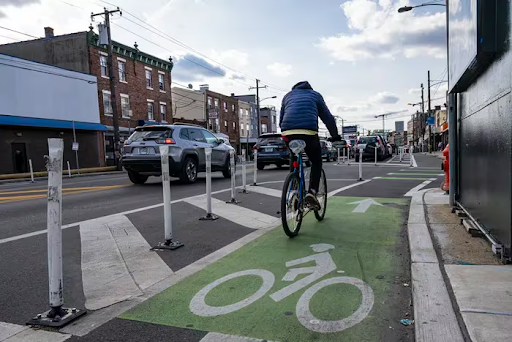
PennDOT released its annual transportation survey for all Pennsylvanians to complete. The survey asks participants about their transportation habits, what type and how they use transportation, and what improvements they want and how they want PennDOT to invest in the future.
Your feedback will be an important part of PennDOT’s 12-year Transportation Program update process along with other state and regional transportation plans. Sustainable modes of transportation are the best for the environment. Clean Air Council supports active sustainable modes of transportation. For more information on how to complete the survey, please visit https://bicyclecoalition.org/penndot-transportation-feedback-survey/.

PHILADELPHIA (January 31, 2025) – This week, Governor Shapiro announced a new energy plan for Pennsylvania, the “Lightning Plan,” to cut energy costs for consumers and boost energy efficiency, renewables, and fossil fuels alike. Currently, only 3% of Pennsylvania’s energy comes from renewable sources. As AI and cryptocurrency demand ever more electricity, Pennsylvania must respond swiftly by bringing more renewable energy online to ensure the affordability of energy costs.
The Governor’s plan aims to grow Pennsylvania’s energy sector by revamping tax credits to incentivize energy investment, speeding project permitting, updating Pennsylvania’s flagship energy efficiency program, and enhancing access to community energy, such as solar. The plan also includes energy policies introduced by the Governor last year, which would increase renewable energy standards and cap pollution from the power sector.
Alex Bomstein, Clean Air Council Executive Director, issued the following statement:
“There is much to like in Governor Shapiro’s ambitious energy plan, such as its support for renewable energy development and modernizing energy standards. At the same time, fossil fuels compete with renewables, and the details of some of these proposals will be critical to ensure they help more than they harm. We must take every available action to ensure Pennsylvania doesn’t lose out on this opportunity to create jobs, lower energy costs, diversify our energy mix, and cut harmful pollution by boosting cheap and abundant renewables.”
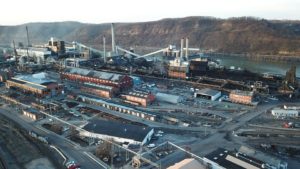
Washington, D.C. – A coalition of clean air advocates filed a federal lawsuit against the EPA
yesterday demanding stronger rules to reduce hazardous air pollution – including cancer-
causing benzene – from steel industry coke oven plants across the country.
Coke oven plants, located in Western Pennsylvania, Northern Indiana, Alabama and a dozen
other locations in the U.S., superheat coal in a kiln without oxygen to produce a carbon-dense
coal byproduct that is used in iron and steel manufacturing.
Because these plants release large amounts of air pollution, the U.S. Environmental Protection
Agency on July 5 imposed new regulations meant to control their hazardous emissions,
including benzene, mercury, lead, and arsenic.
The Environmental Integrity Project, Earthjustice, Clean Air Council, Sierra Club, and PANIC filed
a lawsuit challenging the new rules in the United States Court of Appeals for the District of
Columbia Circuit because the regulations did not go far enough to control benzene, exposing
communities downwind from coke oven plants to dangerous levels of this carcinogen.
“EPA failed to impose strong enough standards to adequately protect the public, and failed to
require industry to install modern pollution control technologies that are readily available,” said
Haley Lewis, attorney for the Environmental Integrity Project. “The public health risk is
unacceptable, and so we are asking the D.C. Circuit Court to intervene.”
Tosh Sagar, Earthjustice attorney, said: “For decades, the EPA has ignored setting coke oven
standards, allowing cancer-causing pollutants to harm communities in Pennsylvania, Alabama,
Indiana, Michigan, and Ohio. These communities have suffered enough. We’re urging the D.C.
Circuit to force the EPA to finally do its job and protect them.”
Alex Bomstein, Clean Air Council Executive Director, said: “Pennsylvania steel communities
have lived with dangerous air quality for generations. That needs to end. All of us deserve the
cleanest air for the health of our families and our communities, no matter where we live.”
Among the facilities that would be impacted by the rule is the largest coke works in North
America, the U.S. Steel Clairton plant southeast of Pittsburgh, where air pollution monitors
have detected dangerously high levels of benzene.
Other coke works where unhealthy levels of benzene have been detected include Indiana’s
Cleveland Cliffs Burns Harbor plant, beside Lake Michigan; and ABC Coke in Birmingham,
Alabama.
For a copy of the EPA regulations that are being challenged, click here.
For a copy of the lawsuit filed yesterday, click here.
The Environmental Integrity Project and coalition of allied groups sent EPA a detailed critique of
the new hazardous air pollution regulations, which you can read here.

MONACA, PA (March 21, 2024) — Shell’s Beaver County plastics plant will no longer be able to operate under a construction permit. The Clean Air Act and Environmental Protection Agency (EPA) regulations require that a facility submit a Title V Operating Permit application within 12 months of commencing operation.
Despite starting operations in November 2022, the plant was still renewing its construction permit with Pennsylvania Department of Environmental Protection (PADEP). PADEP issued a letter on February 22, 2024, directing Shell Chemical Appalachia to submit a Title V Operating Permit application within 120 days. Once that application is submitted, PADEP must issue or deny the permit within 18 months.
“Since its opening in late 2022, Shell’s Beaver County plastics plant has been a serial lawbreaker, illegally emitting many tons of pollution into the air we breathe,” said Alex Bomstein, Clean Air Council Executive Director. “PADEP’s order to Shell to apply for a Title V Operating Permit for its plant sets up the public and our environment with better protection from harmful pollution, and allows the public to file comments and petition the EPA to object to any potential shortcomings in the resulting permit.”
Shell exceeded its 12-month rolling emission limits for volatile organic compounds (VOC) beginning in October 2022 through April 2023, carbon monoxide (CO) from February through March 2023, nitrogen oxides (NOx) from December 2022 through April 2023, and hazardous air pollutants (HAP) from December 2022 through April 2023. In addition to emissions violations, PADEP cited Shell for flaring violations from June 2022 through April 2023, and malodor violations from its wastewater treatment plant in January, February, and April 2023 – which included discharging benzene into the Ohio River.
Beaver County Marcellus Awareness Community (BCMAC) sent a letter to PADEP today requesting that once they receive Shell’s application it will be posted on their website so that the community has ample time for view. BCMAC will also ask that a public hearing be held to allow sufficient time for public comment.
“We’re working with local, regional and national partners who have the legal and technical experience with Title V permits to ensure that Beaver County residents will be accurately informed every step of the way,” said Hilary O’Toole, Executive Director of BCMAC. She continued, “We will be scheduling meetings and educational events throughout Beaver County to engage municipal leaders and community members.”
The PADEP must receive Shell’s Title V application by June 21, 2024.
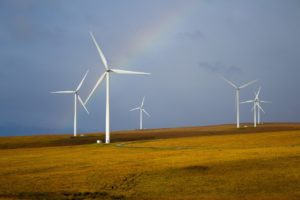
PENNSYLVANIA (March 13, 2024) – Today, Governor Shapiro announced an energy plan today that would increase the use of renewable energy and establish a cap-and-invest program for the state’s power sector. The Pennsylvania Reliable Energy Sustainability Standard (PRESS) would require clean energy to make up 35% of the state’s energy by 2035. Pennsylvania currently ranks 45th in the nation in renewable energy production; just 3% of Pennsylvania’s energy comes from renewable sources. Expanding and diversifying renewable energy usage requirements for utilities will increase energy reliability, create family-sustaining jobs, and reduce air pollution in the state.
The Pennsylvania Climate Emissions Reduction Initiative (PACER) is the Governor’s plan for a Pennsylvania-specific cap-and-invest program. This program, which is similar to the Regional Greenhouse Gas Initiative (RGGI) in design, would set a cap on carbon emissions from Pennsylvania’s largest power plants and require them to purchase credits from the Commonwealth to offset their emissions. PACER will operate within Pennsylvania: the carbon cap and credit price would be set by the state and revenue from the program would go toward consumer electricity bill rebates and energy efficiency investments for large energy producing facilities.
Clean Air Council Executive Director Alex Bomstein issued the following statement.
“We are enthused that Governor Shapiro is giving long overdue attention to our right to a healthy environment. PACER and PRESS demonstrate the Governor’s commitment to putting Pennsylvanians first. The Governor is taking a critically needed step to increase renewables in the Commonwealth’s energy mix through PRESS, growing the clean energy market, improving energy reliability, and reducing air pollution. We are optimistic that with robust community input, the final version of PRESS will boost only true renewable energy such as wind and solar. And while we still view RGGI as the best power sector cap-and-invest program for Pennsylvania, we are excited to work with the Governor and the legislature on PACER to realize the greatest possible benefits for Pennsylvania residents, ratepayers, and workers alike.”
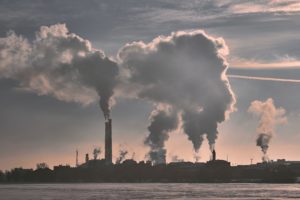
RENOVO, PA (August 30, 2022) – Yesterday, the Pennsylvania Environmental Hearing Board ruled in favor of three environmental groups in their appeal of the air pollution permit for a large proposed gas-fired power plant in Clinton County, finding that the Pennsylvania Department of Environmental Protection set two limits too high for two harmful pollutants. The ruling comes in the middle of a legal challenge which continues toward trial on other claims.
The Board granted partial summary judgment on the issues of the sulfur dioxide and volatile organic compounds limits in the permits. That means that the environmental groups proved, without needing a trial, that DEP broke the law when it allowed the power plant to emit such high levels of pollution. High levels of sulfur dioxide can cause health problems including hurting lung function, causing wheezing and shortness of breath. Volatile organic compound pollution may irritate people’s eyes, nose, and throat, increase cancer risk, and damage the central nervous system. The Board’s opinion is here.
In 2021, Clean Air Council, Citizens for Pennsylvania’s Future (PennFuture), and Center for Biological Diversity lodged their appeal of the permit for the Renovo Energy Center, a gas-fired power plant which Bechtel Corporation proposes to build just feet away from the homes and businesses of the environmental justice community of Renovo, in north-central Pennsylvania.
The groups objected to the permit because it allows illegal levels of air pollution, the DEP ignored environmental justice concerns and the costs to society in issuing the permit, and based on several other deficiencies spelled out in the Notice of Appeal.
“This ruling is vindication for the community,” said Joseph Otis Minott, Executive Director and Chief Counsel of Clean Air Council. “DEP must set pollution limits to protect the public based on science and law, not on the whims of the polluter.”
“DEP had simply not done what the law requires to protect the community from these types of emissions,” said Jessica O’Neill, senior attorney at PennFuture. “The Board recognized this clear violation, and we will continue to press the rest of our claims against this flawed permit.”
“Trying to build a new methane-gas burning power plant at this point is just absurd,” said Robert Ukeiley, a senior attorney at the Center for Biological Diversity. “We need to be shifting to clean, cheap energy like solar and wind rather than dirty, expensive power plants which burn methane gas.”
The environmental groups’ claims on other matters, including DEP’s failure to follow its own Environmental Justice policy, still remain before the court.

October 5, 2021 – A serious and growing problem has been leaking to the surface for decades, resulting in significant amounts of greenhouse gas pollution and other contaminants harming Pennsylvania’s air, soil, and water. Companies have been extracting oil and gas from drilled wells in Pennsylvania since the 19th century – long before our government attempted to keep track of them or enforce permitting and plugging requirements. As a result, hundreds of thousands of unplugged orphan and abandoned wells dot the landscape, leaking methane, oil, and volatile organic compounds (VOCs) to this day. State law distinguishes between wells classified as orphan or abandoned. These wells, left behind by defunct companies or with no known owner, are in dire need of remediation and have become a significant liability for state taxpayers. The facts are sobering.
Pennsylvania is estimated to have anywhere from 200,000 to 560,000 orphan and abandoned oil and gas wells. Despite their age, these wells leak significant amounts of methane every year. Methane is up to 87 times more potent as a heat-trapping gas than carbon dioxide over a 20-year timeline. Pennsylvania’s Department of Environmental Protection (DEP) has thus far documented only around 8,700 of these wells given the agency’s limited resources. Orphan wells can be found in strange places: along riverbanks, deep in the woods, even inside people’s homes. The uncontrolled release of gas and liquids from unplugged wells is fouling water supplies, polluting the air, and creating a serious safety hazard for those living nearby.
Although DEP’s efforts to address this problem have been admirable, the agency simply cannot manage this crisis with its current resources. According to the Department, it has only about $400,000 a year and a small grant program to spend on this. Meanwhile, the true costs of plugging wells are staggering. All wells are different and, while DEP has conservatively estimated an average plugging cost of $33,000 per well, costs can easily add up to hundreds of thousands of dollars for a single well.
The solution is much more complicated than simply “capping” a well by placing something on top. The key is to isolate each flow zone, corrosive zone, and water zone to prevent vertical migration of fluids, which is done by injecting cement and placing plugs throughout the wellbore at strategic spots. Without that, you would see significant methane migration in the subsurface (with houses and coal mines occasionally blowing up). Most well plugging programs focus more on addressing emergency conditions as they arise, rather than broadly tackling the problem, which must include a massive undertaking to identify undocumented wells.
So what can be done? Pennsylvania’s expected participation in the Regional Greenhouse Gas Initiative (RGGI) beginning in early 2022 provides an opportunity. Linking with RGGI is projected to generate hundreds of millions in annual proceeds for Pennsylvania, which can be reinvested in programs to further eliminate air pollution. Without question, orphan well plugging merits a reasonable share of those funds. New technology is available to make accurate estimates of emissions and establish a set of high priority wells. An efficient well-plugging program can tackle these problem wells, plugging up to 1,000 of them per year. Wells that are dry or are leaking very small amounts can be left for later. RGGI funds will likely be available to DEP as early as Q1 2022, and Pennsylvania currently has plenty of bench strength in well plugging manpower, experience, and capability.
At the federal level, President Biden called on Congress in the spring to allocate $16 billion to plug old oil and gas wells and clean up abandoned mines as part of his Build Back Better agenda. When the US Senate passed the $550 billion Bipartisan Infrastructure Framework in early August (by a vote of 69-30), the bill included roughly $5 billion dedicated to plugging orphan wells. Funding at this scale is a great down payment, as Pennsylvania appears to be eligible for up to $600 million over the next ten years. Some of those funds can also be spent on identifying and prioritizing undocumented orphans.
The legislation is now in the House and, consistent with the plans of President Biden and Democratic leadership, its passage is currently linked with the more comprehensive reconciliation package still being negotiated. To be clear, the big, bold climate investments in the reconciliation bill are absolutely critical and necessary. They represent perhaps our last chance to address climate change legislatively this decade. We do not have another decade to waste! Enacting both pieces of legislation would be a historic victory for the country and the people of Pennsylvania on multiple fronts, including the major funds for orphan well plugging.
All in all, cleaning up our air, water and soil while creating good-paying jobs and, most critically, significantly curbing greenhouse gas emissions by documenting and plugging orphan wells is a key priority for Clean Air Council.
Robert M. Routh, Esq.
Public Policy and Regulatory Attorney
rrouth@cleanair.org

Do you feel like politics has gotten more contentious over time? Do you feel like your interests are not represented in government? You’re not alone, and you’re not imagining it. Corporations wield their political power at the expense of regular people, and politicians rarely listen to their constituents, let alone each other.
Harrisburg is no better than Washington. Pennsylvanians want to protect our environment by wide margins. Polls show that most Pennsylvanians oppose fracking. Most Pennsylvanians want the state to do more to combat climate change. Almost nine out of ten Pennsylvania voters say that open space is important to them. Yet the Pennsylvania General Assembly has not passed any major pro-environment legislation in many years. That’s because our politicians by and large don’t represent the interests of the people.
One big reason that our system is so undemocratic is that our elections are designed to disempower the public. And it’s the public that protects our air, our land, and our water—corporate interests won’t do it for us.
Gerrymandering refers to the practice of drawing the lines of voting districts to benefit some interests at the expense of others. Because the State House and State Senate district lines in Pennsylvania are gerrymandered, competitive races among politicians with different values are rare, so voters often sit them out. And because the districts often stretch out over long, twisting expanses of geography, it can be hard for voters within a district to band together to protect their interests.
In 2018, the Pennsylvania Supreme Court undid the gerrymandered Pennsylvania Congressional district lines, declaring, “[a]n election corrupted by extensive, sophisticated gerrymandering and partisan dilution of votes is not ‘free and equal.’” Unfortunately, the gerrymandered House and Senate district lines remain, and partisan interests will again seek to redraw the Congressional district lines.
We don’t have to stand for unfair districts in Pennsylvania. Every decade, the U.S. Census compiles new demographic data that the states use to draw new voting districts. Right now, Pennsylvania is working on gathering information to draw those districts, and it’s asking for the public to weigh in on the process. There are hearings going on now at which you can testify about your desire for fair and impartial districts. You can find out more about how to do that here: https://www.fairdistrictspa.com/updates/happening-now-testimony-opportunities-for-fair-maps. You can also call or write to your State Representative and State Senator. If you’re not sure who they are or how to reach them, you can find out here: https://www.legis.state.pa.us/cfdocs/legis/home/findyourlegislator/. Don’t wait—get involved now!
It may seem counterintuitive to lament that politicians don’t listen to us and then suggest that you talk to your politicians. But while our voices should have more power, that doesn’t mean that they have none now. Clean Air Council members time and again win hard-earned victories against corporate interests by organizing, speaking up, and fighting hard. Our model is built on the power of the people. We can win fair districts in Pennsylvania. When we do, our voices demanding clean air, pure water, and a healthy environment will have to be heard.
By Alex Bomstein, Senior Litigation Attorney, abomstein@cleanair.org
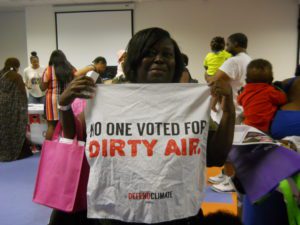
[Nov. 06, 2017-PHILADELPHIA] — On behalf of Clean Air Council and two Pennsylvania children, Hausfeld filed suit today in the Eastern District of Pennsylvania against the federal government to prevent it from rolling back policies, programs, laws, rules, and regulations previously in place to address and ameliorate climate change and its consequences. This pro bono litigation focuses on the federal government’s knowledge (dating back over fifty years) that climate change presents a clear and present danger to life, and represents an urgent and potentially irreversible threat to human societies and the planet. You can read the full complaint here.
The United States has experienced a steady increase in extreme weather events caused by climate change, as exemplified most recently by the devastating impact of Hurricanes Harvey and Irma, and the October California wildfires. If not adequately addressed, climate change will cause human deaths, shorten human life spans, result in widespread damage to property, threaten human food sources, drastically affect human air quality, and dramatically alter the planet’s ecosystem to the detriment of the plaintiffs in this case, their children and grandchildren, and all future generations.
The federal government has relied on junk science to implement reckless climate change policies in the face of indisputable U.S. and international scientific consensus. It is the government’s responsibility to protect the lives and welfare of citizens and the life-sustaining resources they depend on. These acts of deliberate indifference are increasing U.S. contributions to climate change, thereby increasing the frequency and intensity of its life-threatening effects, and violating the constitutional rights of all U.S. citizens.
Plaintiffs are leading Philadelphia environmental nonprofit Clean Air Council and two child plaintiffs who have been personally impacted by climate change. The Federal Government Defendants include President Donald Trump, the Department of Energy, Secretary Rick Perry, the Environmental Protection Agency, and Administrator Scott Pruitt.
Clean Air Council Executive Director and Chief Counsel Joseph Minott said: “We will not stand idly by while President Trump and his agencies raze crucial environmental protections, ignore climate science, dispute well-documented facts and force future generations of Americans to suffer the consequences of this administration’s reckless choices and ignorant policies. We must hold the federal government accountable for the long-term environmental harm that is propagating under its direction. It’s time to fight back.”
Scientists refer to climate change as the most important issue of our time. Human contribution to climate change, which exacerbates its effects, has reached a critical moment, the consequences of which are potentially irreversible. Hausfeld Chairman Michael D. Hausfeld stated: “By deliberately engaging in this rollback of climate policies and programs, the government is affirmatively endangering the lives and welfare of its citizens.”
This lawsuit comes on the heels of the federal government’s release of the National Climate Assessment, which, in stark contrast to the administration’s environmental policies, affirms that climate change is almost entirely caused by human action and is a growing threat to the United States.
Hausfeld attorneys working on this case include Michael D. Hausfeld, Seth R. Gassman, Katie R. Beran, Braden Beard, and Michaela Spero.
For further information or to arrange interviews please contact:
Deborah Schwartz
Media Relations
(240) 355-8838
deborah@mediarelationsinc.com
Jamie Kloss
Braithwaite Communications
(215) 564-3200 ext. 162
jamie@gobraithwaite.com
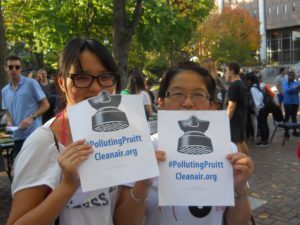
NOTES TO EDITORS
About Hausfeld
Hausfeld is a leading global law firm with offices in Berlin, Boston, Brussels, Düsseldorf, London, New York, Philadelphia, San Francisco, and Washington, DC. The firm has a broad range of complex litigation expertise, particularly in antitrust/competition, financial services, sports and entertainment, environmental, mass torts, consumer protection, and human rights matters, often with an international dimension. Hausfeld aims to achieve the best possible results for clients through its practical and commercial approach, avoiding litigation where feasible, yet litigating robustly when necessary. Hausfeld’s extensive experience with alternative and innovative fee models offers clients a diverse menu of engagement options and maximum flexibility in terms of managing their cost exposure.
Hausfeld is the only claimants’ firm to be ranked by the Legal 500 and Chambers & Partners as a top tier firm in private enforcement of antitrust/competition law in both the United States and the United Kingdom. For more information about the firm, including recent trial victories and landmark settlements, please visit: www.hausfeld.com.
About Clean Air Council
Clean Air Council is a member-supported, non-profit environmental organization dedicated to protecting everyone’s right to breathe clean air. The Council is headquartered in Philadelphia and works through public education, community organizing, advocacy, and government oversight to ensure enforcement of environmental laws. For more information, please visit www.cleanair.org.

